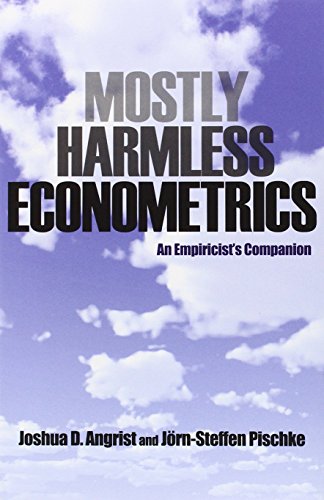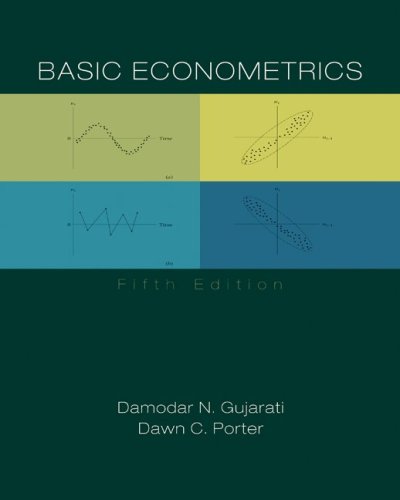(Part 2) Top products from r/rstats
We found 22 product mentions on r/rstats. We ranked the 46 resulting products by number of redditors who mentioned them. Here are the products ranked 21-40. You can also go back to the previous section.
21. Forecasting models – an overview with the help of R software: Time Series Prediction - Past, Present and Future (Machine Learning Book 4)
Sentiment score: 1
Number of reviews: 1
 Show Reddit reviews
Show Reddit reviews22. Regression Modeling Strategies: With Applications to Linear Models, Logistic Regression, and Survival Analysis (Springer Series in Statistics)
Sentiment score: 1
Number of reviews: 1
 Show Reddit reviews
Show Reddit reviews24. Doing Bayesian Data Analysis: A Tutorial with R, JAGS, and Stan
Sentiment score: 0
Number of reviews: 1
 Show Reddit reviews
Show Reddit reviews25. Clean Code: A Handbook of Agile Software Craftsmanship
Sentiment score: 1
Number of reviews: 1
Prentice Hall
 Show Reddit reviews
Show Reddit reviews26. Applied Longitudinal Data Analysis: Modeling Change and Event Occurrence
Sentiment score: 1
Number of reviews: 1
 Show Reddit reviews
Show Reddit reviews27. Econometric Methods with Applications in Business and Economics
Sentiment score: 1
Number of reviews: 1
Oxford University Press USA
 Show Reddit reviews
Show Reddit reviews28. Deep Learning (Adaptive Computation and Machine Learning series)
Sentiment score: 1
Number of reviews: 1
The MIT Press
 Show Reddit reviews
Show Reddit reviews29. Elementary Statistics: Picturing the World, Books a la Carte Edition (6th Edition)
Sentiment score: 1
Number of reviews: 1
 Show Reddit reviews
Show Reddit reviews32. An R Companion to Applied Regression
Sentiment score: 1
Number of reviews: 1
Sage Publications Inc
 Show Reddit reviews
Show Reddit reviews34. Mathematical Statistics with Applications
Sentiment score: 1
Number of reviews: 1
 Show Reddit reviews
Show Reddit reviews35. Data Analysis Using Regression and Multilevel/Hierarchical Models
Sentiment score: 0
Number of reviews: 1
Cambridge University Press
 Show Reddit reviews
Show Reddit reviews36. Mostly Harmless Econometrics: An Empiricist's Companion
Sentiment score: 0
Number of reviews: 1
Princeton University Press
 Show Reddit reviews
Show Reddit reviews37. Code Complete: A Practical Handbook of Software Construction, Second Edition
Sentiment score: 1
Number of reviews: 1
Microsoft Press
 Show Reddit reviews
Show Reddit reviews38. Statistics: The Exploration & Analysis of Data (Available Titles Aplia)
Sentiment score: 1
Number of reviews: 1
Used Book in Good Condition
 Show Reddit reviews
Show Reddit reviews





From one R newbie to another, I have found the website Quick-R to be the most helpful. I was roped into using R on my thesis and have had to learn everything as I go, so I don't have the background that a lot of other R users do. That said, it's nice to have a condensed, plain-english reference without all the alphabet soup of theory.
I also use A Beginner's Guide to R to figure out the basic stuff and R in Action for more advanced topics. I don't know what your statistical background is, but you should also try to find a solid stats book related to your field.
As a last bit, and this may not be a popular sentiment on this sub, but I have found very little help through the r-help files, mailing lists, or stackoverflow. Most times the posts are written by and for people with much greater ability than mine so I have a really hard time gleaning any useful information. Also, I have found that there are a lot of condescending attitudes throughout and it's soured me to those sources. In my experience, the R community at large is not very friendly towards beginners.
Good luck on your adventuRe.
If you want to know just the practical use:
The closest the R2 goes to 1, the better the model. For example, an R2 of, say, 0.82 means: "82% of the variation of the dependent variable is explained by the variation of the dependent variables". Conversely, the less the R2, the less the predictive power of the dependent variables.
In order to evaluate the significance of each variable, you have to check the P values. The practical meaning is: the lower the p-value, the more useful is the variable. For example, a p-value of, say, 0.01 means the variable is very significant, and therefore should be implemented in the model. The level of significance of course depends on your work.
edit: If you want to know the theory, take a look at this. It is one of the best books. https://www.amazon.com/Basic-Econometrics-Damodar-Gujarati/dp/0073375772
My advice would be to find a dataset for yourself that you wish to analyse in some manner and work through that using the references you have and Stackoverflow to search for solutions to problems you encounter (and asking when you can't find a solution).
This is because, in my experience, most exercises are canned and have perfect working solutions provided, yet when you get to the real world working on your own data things are never perfect and you will have a lot of problems to solve.
One very useful thing I can recommend is to start learning how to use Knitr as a basis for making your work-flow from importing data through to producing reports (in LaTeX or HTML via R markdown) completely reproducible.
A couple of useful references though are the following books which all have R examples...
The authors of the last two books do an online course Statistical Learning based on the Intro to Stat Learning book if you want to work through a course. I did this last year but am yet to put much of it into practice yet (and consequently have forgotten the majority of it, but the PDFs linked above will be very useful when I get round to using the methods).
I can recommend Applied Longitudinal Data Analysis: Modeling Change and Event Occurrence by Judith Singer & John Willett.
The second half of the book considers survival analysis, and R code for the examples from each chapter of the book are available here -- in addition to code for SAS, SPSS Stata, etc.
Full disclosure: I have only worked through the first half of the book so far (growth curve modeling), but the text is very complete and the code on that webpage has been really helpful. I imagine the section on survival analysis is similarly helpful.
If you're moving from academia, chances are any code you've written has been to get the computer to do something. Software development is more about writing code for other people to read and work with... which also happens to do what you want it to do. You might want to make sure you have the basics of software engineering practices down by reading Code Complete and Clean Code: A Handbook of Agile Software.
Beyond that, if you have a solid project or two that you can talk about the ins and outs of, it shouldn't be hard to convince a company that you can analyze data and write code to automate or otherwise help with that process.
Another excellent book is CAR. I really like it. In addition to the regression content it teaches a good number of practices and tricks in working with R.
Deep Learning With Python is very good for practical application, as is the course at fast.ai. For theory, people love Goodfellow.
> I'd like to know, how did you learn to use R?
My batshit crazy lovable thesis advisor was teaching intro datascience in R.
He can't really lecture and he have high expectation. The class was for everybody including people that don't know how to program. The class book was advance R http://adv-r.had.co.nz/... (red flag).
We only survived this class because I had a cs undergrad background and I gave the class a crash course once. Our whole class was more about how to implement his version of random forest.
I learned R because we had to implement a version of Random forest with Rpart package and then create a package for it.
Before this a dabble in R for summer research. It was mostly cleaning data.
So my advice would be to have a project and use R.
>how did you learn statistics?
Master program using the wackerly book and chegg/slader. (https://www.amazon.com/Mathematical-Statistics-Applications-Dennis-Wackerly/dp/0495110817)
It's a real grind. You need to learn probability first before even going into stat. Wackerly was the only real book that break down the 3 possible transformations (pdf,cdf, mgf).
I really enjoy using this book for reference material. It depends on what you are trying to learn, though. You won't find code examples in it.
What you will find, however, is a ton of different methods and examples of how to apply them (contextually). You'd probably need to have a least a basic idea of how to begin the analysis to make it useful. (For instance, I'm modeling a binary event, I need a logit or probit, start w/ that chapter; or I'm modeling a rank, Tobit).
As a book for beginning R programmers, I would recommend The Art of R Programming: A Tour of Statistical Software Design, written by Norman Matloff. As a general machine learning book, I liked this book, written by Peter Flach.
Three very good introductory textbooks for statistics are:
Mendenhall, Statistics https://www.amazon.com/Introduction-Probability-Statistics-William-Mendenhall/dp/1133103758
Larson and Farber https://www.amazon.com/Elementary-Statistics-Picturing-World-Books/dp/0321901118
Peck and Devore https://www.amazon.com/Statistics-Exploration-Analysis-Available-Titles/dp/0840058012
Buy used, older editions of each, and you can get them very cheap. These are all well explained, beginner texts.
Both JAGS and BUGS use the same language and can perform very similar operations. JAGS is more portable across operating systems, so for that reason, I would suggest JAGS (BUGS is generally limited to Windows). However, documentation/blog posts/forum posts (which exist in abundance!) for both languages will generally work for either tool. If you are looking for a textbook, Doing Bayesian Data Analysis provides a nice introduction to both bayesian statistics as well as JAGS.
Outside of JAGS/BUGS, there exists another similar language for performing Bayesian statistics called Stan (also described in the above book). Stan is newer, and often times will "run faster" than JAGS, however it does not directly support as many types of analyses.
My advice would be to learn JAGS while simultaneously learning the basics of Bayesian methods. Once you understand the basics of JAGS, try exploring Stan!
https://www.amazon.com/Analysis-Regression-Multilevel-Hierarchical-Models/dp/052168689X is the definitive text on the subject. I highly recommend this book to understand the fundamentals of multilevel modeling.
you check the following book
Forecasting models – an overview with the help of R software : Time series - Past ,Present and Future
https://www.amazon.co.uk/dp/B07VFY53B1 (E-Book)
https://www.amazon.com/dp/1081552808 (Paperback)
ISBN: 9781081552800
You might check out Dr. Gerbing's work at Portland State U. He teaches stats in the business school and uses R.
http://www.pdx.edu/sba/david-gerbing
He even wrote a textbook you might find useful:
http://www.amazon.com/dp/0415657202/
I haven't read it yet, so I don't know how helpful it will be.
Mostly Harmless Econometrics is a classic. It gets into regression, but also design with inference in mind. Combine that with ISLR and you should be set!
Try this or this